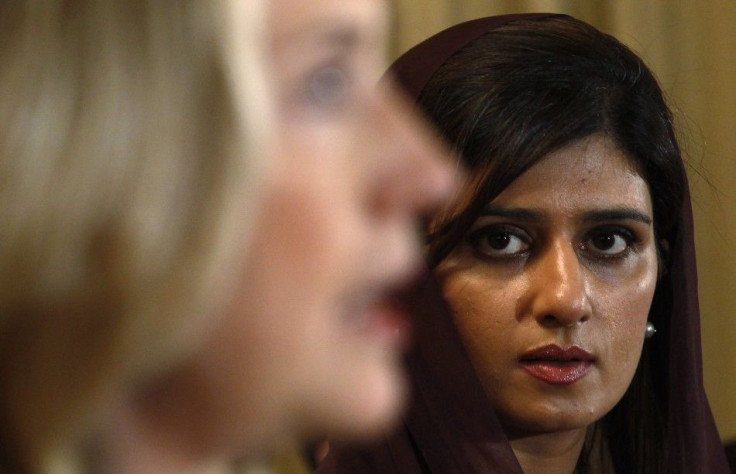Clinton Pressures Pakistan to Crack Down on Militants

U.S. Secretary of State Hilary Clinton is demanding that the Pakistani government and military take immediate action against militants operating along the border with Afghanistan and engage the Taliban in peace talks to bring an end to a decade of war.
Clinton also pressed Pakistani authorities to strike harder against Afghan insurgents who are launching attacks on NATO targets from bases in Pakistan.
The Secretary of State is in the South Asian country for talks with senior Pakistani officials, including Foreign Minister Hina Rabbani Khar, on finding ways to solve the security crisis ahead of the departure of western troops from Afghanistan.
Accompanied by CIA director David Petraeus and the chairman of the Joint Chiefs of Staff General Martin Dempsey, Clinton nonetheless assured Islamabad of the U.S.’ long-term support.
“We look to Pakistan to take strong steps to deny Afghan insurgents safe havens and to encourage the Taliban to enter negotiations in good faith,” Clinton said after talks with Khar.
Clinton emphasized that the U.S. government is asking Pakistan to take action “over the next days and weeks, not months and years... because we have a lot of work to do to realize our shared goals.”
Pakistan’s relations with Washington have deteriorated significantly since the discovery (and assassination) of former al-Qaida chieftain Osama bin Laden in a compound near Islamabad in May. Since then, Washington officials have demanded that Pakistan explain its true links to the militant and terrorist groups that it is ostensibly supposed to be fighting against.
Most notably, the recently departed former joint chief of staff, Admiral Mike Mullen, openly accused Pakistan’s Inter-Services Intelligence agency (ISI) of working closely with the Haqqani militant network.
Clinton reiterated her demand that Pakistan fight harder against Haqqani militants, who are now engaged in skirmishes with the U.S. and Afghan troops along the border.
Thus far, Pakistan said it doesn’t have enough manpower to launch an offensive against the Haqqani network.
“We asked very specifically for greater cooperation from the Pakistani side to squeeze the Haqqani network and other terrorists… trying to eliminate terrorists and safe havens on one side of the border is not going to work,” Clinton said.
“It’s like that old story: you can’t keep snakes in your backyard and expect them only to bite your neighbors… eventually those snakes are going to turn on whoever has them in the backyard. It’s not just military action. There is greater sharing of intelligence so we can prevent and intercept the efforts by the Haqqanis or the Taliban to try to cross the border or to plan an attack.”
Foreign Minister Khar appeared to give some support to Clinton’s request.
“Do safe havens exist? Yes, they do exist [on] both sides. Do we need to cooperate? Yes. We can cooperate more and achieve better results,” Khar said.
However, Khar rejected charges from some in Washington that Pakistani intelligence is in league with the insurgents.
“There is no question of any support by any Pakistani institutions to safe havens. Let me be very clear and unequivocal on that,” she added.
Most interestingly, Clinton confirmed that U.S. officials have actually held talks with certain members of Haqqani – the first time this has ever happened – although she provided no details of where or when such a meeting occurred.
Clinton told Pakistani journalists that the U.S. had also reached out to the Taliban in order to gauge its sincerity in seeking peace talks.
© Copyright IBTimes 2024. All rights reserved.











